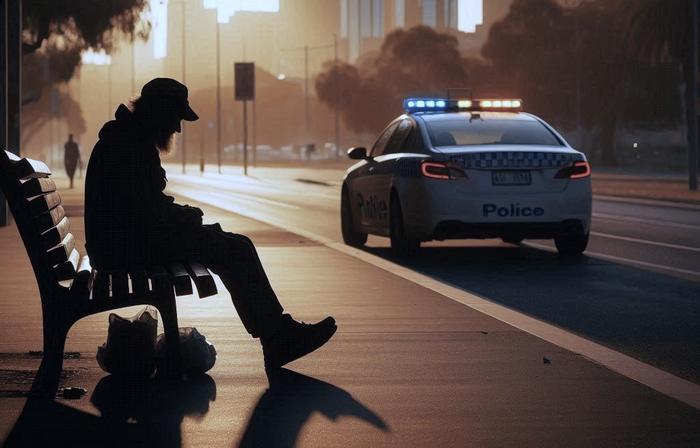A study from Australia sheds light on the challenging relationship between law enforcement and people experiencing homelessness. The research, led by Professor Thalia Anthony from the University of Technology Sydney (UTS), reveals that homeless individuals often feel overwhelmed by frequent police interactions, leading to feelings of intimidation and social exclusion.
The Voices of the Unheard
The study, published in the journal Critical Criminology, aimed to give a platform to those rarely heard in discussions about homelessness and policing. Professor Anthony and her team interviewed over 160 homeless individuals across Australia, including all capital cities and two regional centers.
“We often get the perspective of support agencies, courts and lawyers, but the system very rarely hears the voices of those experiencing homelessness,” Professor Anthony explained. The results were surprising, even to the researchers. “We expected people to say they wanted better policing, more support. Instead, we found that what they really want is freedom from police intrusion in their lives.”
Participants described a range of police interactions, from constant surveillance and identification checks to fines, move-on orders, and arrests. Many felt they were being punished simply for existing in public spaces, with one participant pleading, “Just leave us alone. We’re just trying to find somewhere warm to sleep.”
The Impact on Mental Health and Social Inclusion
The study highlights how pervasive policing significantly impacts the mental health and social integration of homeless individuals. Even well-intentioned actions, such as welfare checks, were often perceived as unnecessary intrusions. One participant experiencing a mental health episode shared, “I just feel like it would’ve been a lot better if they just left me alone.”
This constant scrutiny creates a vicious cycle. Frequent police interactions often lead to fines and criminal records, making it even more challenging for homeless individuals to secure housing and break free from their situation.
The impact is particularly severe for First Nations people, who experience homelessness at rates six times higher than the general Australian population. The study uncovered disturbing accounts of physical abuse and fears surrounding deaths in custody among this community.
Why it matters: This research highlights a critical disconnect between current policing practices and the needs of homeless individuals. By understanding these experiences, policymakers and law enforcement agencies can work towards more compassionate and effective strategies to address homelessness.
The study’s findings come at a crucial time. Between 2016 and 2021, homelessness in Australia increased by 5.2%, affecting people from diverse backgrounds and age groups. Job loss, illness, and a lack of affordable housing are pushing more individuals into precarious living situations.
Professor Anthony’s research also draws attention to a striking imbalance in government spending. In 2021-22, Australia allocated $6 billion to prisons, far outweighing expenditures on social housing. This disparity suggests a need to reassess priorities and consider reallocating resources to address the root causes of homelessness.
One participant summed up the sentiment shared by many: “The answer is not some normal level of policing or better policing – but freedom from policing.” This statement underscores the study’s central message: the solution to homelessness lies not in increased law enforcement but in strengthened social support systems.
The research calls for a shift in focus towards improving social security nets, community support services, and public housing infrastructure. By addressing these fundamental needs, Australia could make significant strides in reducing homelessness and breaking the cycle of criminalization that many homeless individuals face.
As cities around the world grapple with rising homelessness rates, this Australian study offers valuable insights. It challenges policymakers, law enforcement agencies, and communities to reconsider their approach to homelessness, prioritizing compassion and practical support over punitive measures.


